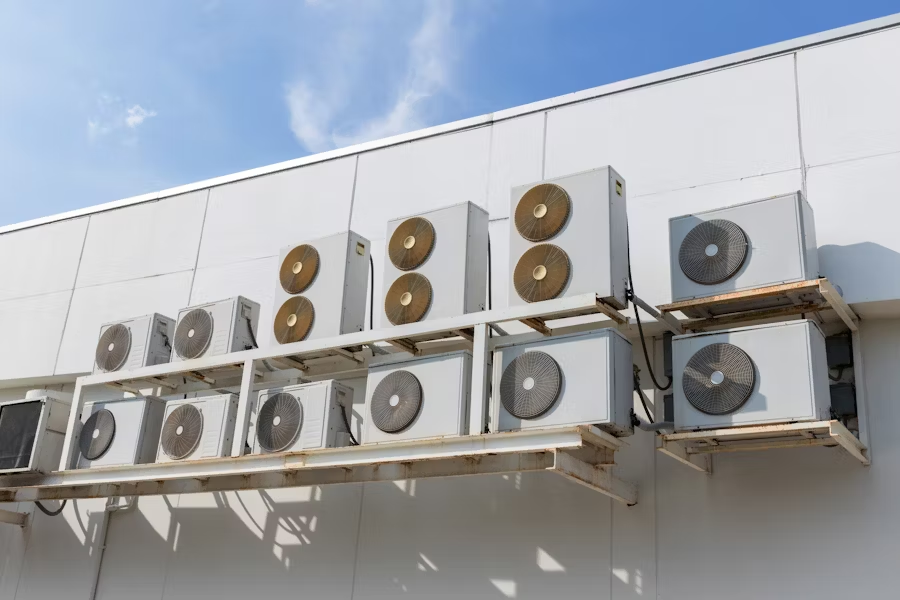Bonus Depreciation Made Simple
Now that bonus depreciation is permanent, investors can build long-term wealth strategies around this powerful tax tool. Think of it as a wealth accelerator—it transforms future tax deductions into immediate cash flow you can reinvest today.
The One-Sentence Explanation
Bonus depreciation lets you deduct up to 100% of certain property improvements in Year 1 instead of spreading the deduction over many years—potentially saving high earners $20,000-$50,000+ in taxes they can reinvest immediately for compound growth.
Normal Depreciation vs. Bonus Depreciation
Let's make this simple with an example:
Normal Depreciation:
- Buy a $10,000 HVAC system
- Deduct over five years ($2,000/year)
- Tax savings trickle in slowly
Bonus Depreciation:
- Same HVAC system
- Deduct all $10,000 in Year 1
- If you're in the 32% tax bracket, that's $3,200 back this year
The Wealth Acceleration Effect: That $3,200 in Year 1 versus $640 annually over five years? Reinvested at 7% returns, the lump sum becomes $4,484 while the annual amounts total just $3,408. Bonus depreciation doesn't just save taxes—it amplifies your investment capacity.
What Qualifies for Bonus Depreciation
YES — Personal Property (5-7 Year Life)
- Appliances (washers, dryers, refrigerators)
- Carpeting and non-permanent flooring
- Furniture for rentals
- Window treatments
- Security systems
YES — Land Improvements (15-Year Life)
- Landscaping
- Fencing
- Parking lots and sidewalks
- Outdoor lighting
NO — Real Property (27.5+ Year Life)
- The building itself
- Permanent flooring (like hardwood)
- Structural walls and roofs (generally)
The Cost Segregation Advantage
A cost segregation study breaks down a property purchase into components, identifying parts eligible for bonus depreciation—turning a single purchase into multiple wealth-accelerating deductions.
Example:
- Purchase price: $500,000 apartment building
- Land: $100,000 (not depreciable)
- Building breakdown of remaining $400,000:
- Structural elements: $200,000 (27.5 years)
- Personal property (appliances, carpeting, etc.): $120,000 (bonus eligible)
- Land improvements (landscaping, parking, fencing): $80,000 (bonus eligible)
Year 1 deduction: $200,000 (bonus) + $7,273 (structural depreciation) = $207,273
At a 32% tax rate, that $200,000 first-year bonus deduction alone saves $64,000 in taxes—enough to fund multiple property down payments and dramatically accelerate portfolio growth.
Three Real-Life Examples
1. Business Owner: Equipment & Improvements
Maria owns a coffee shop. In 2024 she renovates:
- Espresso machine: $30,000
- Furniture: $15,000
- Security system: $5,000
Total deduction: $50,000 upfront. In a 32% tax bracket, that's $16,000 in immediate tax savings. Maria uses this windfall to open a second location rather than waiting five years for the deductions to accumulate—a perfect example of bonus depreciation accelerating business growth.
2. DIY Real Estate Investor: Rental Property Upgrades
James buys a duplex and strategically renovates during his highest-earning year:
- Appliances: $6,000
- Carpet: $4,000
- Landscaping/fencing: $10,000
Total deduction: $20,000. Tax savings of $6,400 provide immediate capital for his next property acquisition, compressing his investment timeline from years to months.
3. Passive Investor: Syndication with Cost Segregation
Lisa, a surgeon earning $600,000 annually, invests $250,000 in a multifamily syndication where the operator's cost segregation study identifies $3M in bonus-eligible property.
Lisa's share of Year 1 losses: $75,000. These passive losses offset other passive income, and since her spouse qualifies as a Real Estate Professional (750+ hours annually in real estate activities), they can offset W-2 income—creating a powerful wealth acceleration loop.
The Passive Loss Rules Made Simple
Think of this as a decision tree:
- Earn under $100K + own rentals: Up to $25,000 deduction against any income
- Earn $100K-$150K + own rentals: Reduced deduction (phases out)
- Earn over $150K: Passive losses carry forward unless you qualify as a Real Estate Professional
- Real Estate Professional status: Use all depreciation to offset any income—the ultimate wealth accelerator
When Bonus Depreciation Works Best
- High-income years: Maximum tax bracket benefit
- Long-term holds: Time for reinvestment compound growth
- Real Estate Professional status: Offset W-2 income
- Capital gains years: Need immediate offsets
When to Be Strategic
- Low-income years: May waste valuable deductions
- Short-term holds: Depreciation recapture risk
- States with different rules: Some don't follow federal guidelines
Smart Wealth Acceleration Strategies
- Half-Year Convention Advantage: Assets placed in service by December 31st get full-year depreciation, even if purchased on December 30th—maximize current-year impact.
- Strategic Renovation Timing: Cluster major improvements in high-income years to maximize tax bracket benefits.
- Cost Segregation Studies: Worth the investment for properties over $500,000—typically pays for itself in first-year tax savings.
- Furnished Rental Strategy: Furnishing rental properties creates more bonus-eligible assets and higher deductions.
Depreciation Recapture Planning
When you sell, you'll pay back some tax savings at a 25% rate. Smart investors plan ahead:
- 1031 exchanges: Defer recapture indefinitely
- Hold until death: Step-up in basis eliminates recapture
- Strategic timing: Sell during lower-income years
Action Steps for Wealth Acceleration
- Audit your assets: Inventory all potentially eligible improvements
- Calculate the impact: If you own properties worth $500K+, get cost segregation quotes
- Time strategically: Plan major purchases around income projections
- Explore REP status: If you earn $150K+, investigate Real Estate Professional qualification
- Document everything: Maintain detailed records for IRS compliance
The Bottom Line
Bonus depreciation isn't just a tax deduction—it's a wealth acceleration machine. By transforming future tax benefits into immediate capital, it compresses investment timelines and amplifies returns. Now that it's permanent, savvy investors can build repeatable strategies around accelerated depreciation, turning tax code complexity into sustainable competitive advantage.






